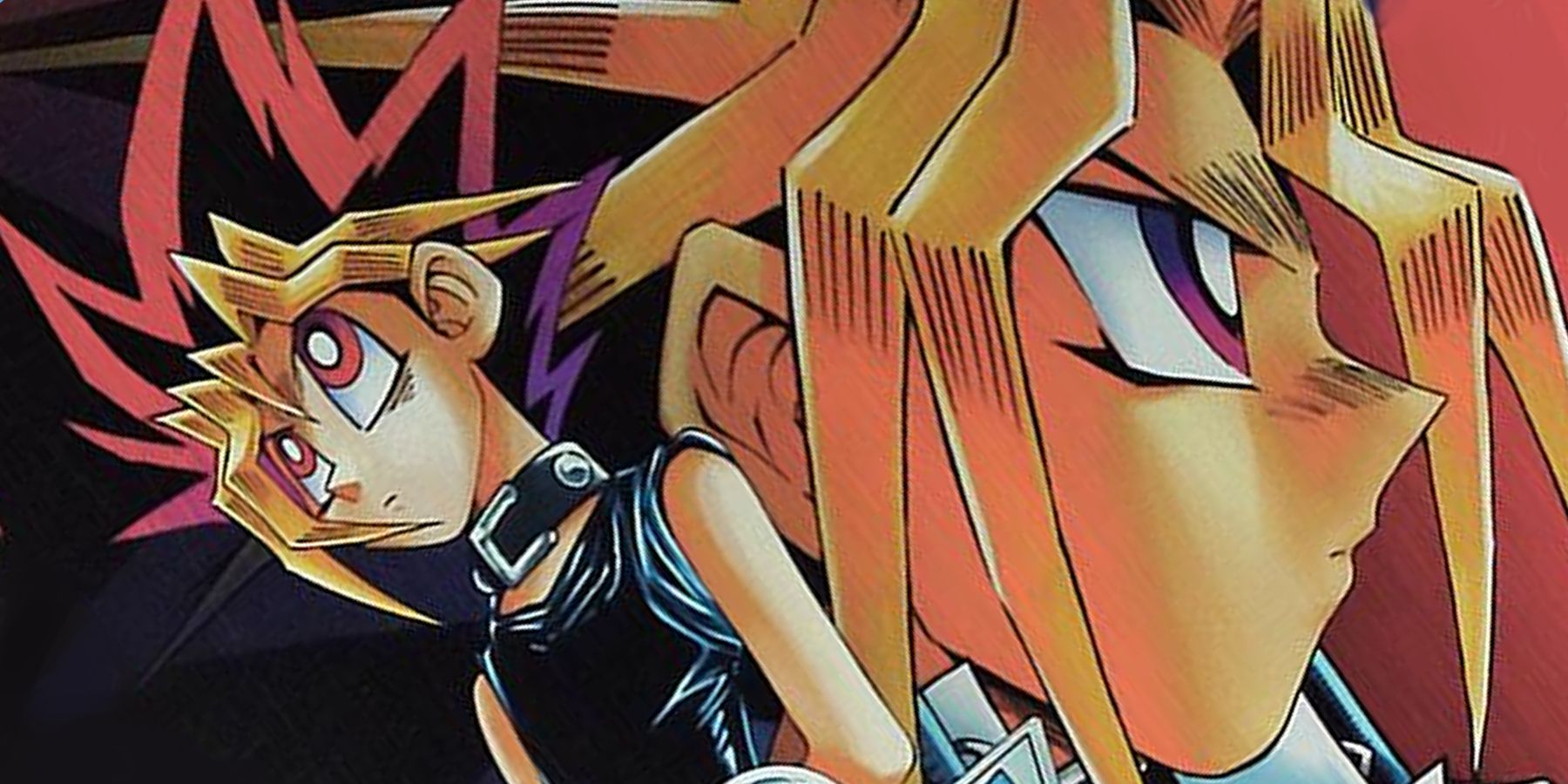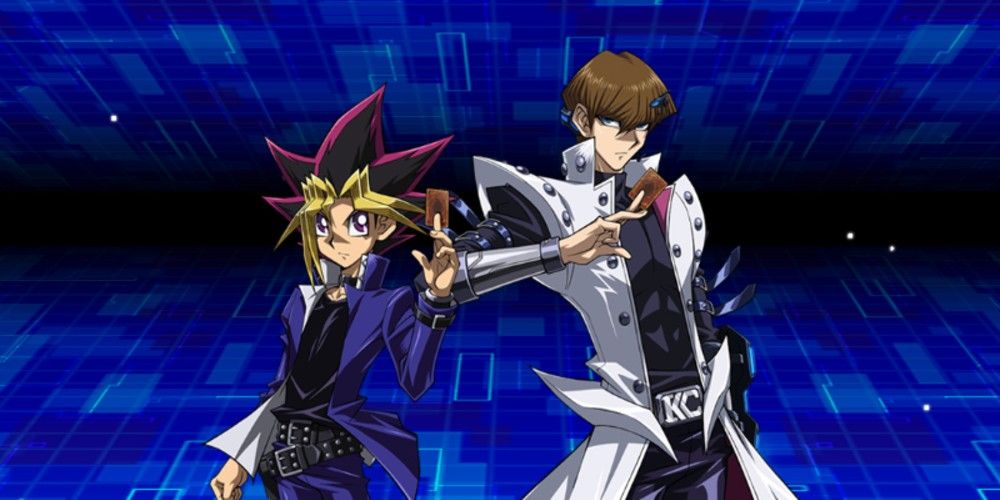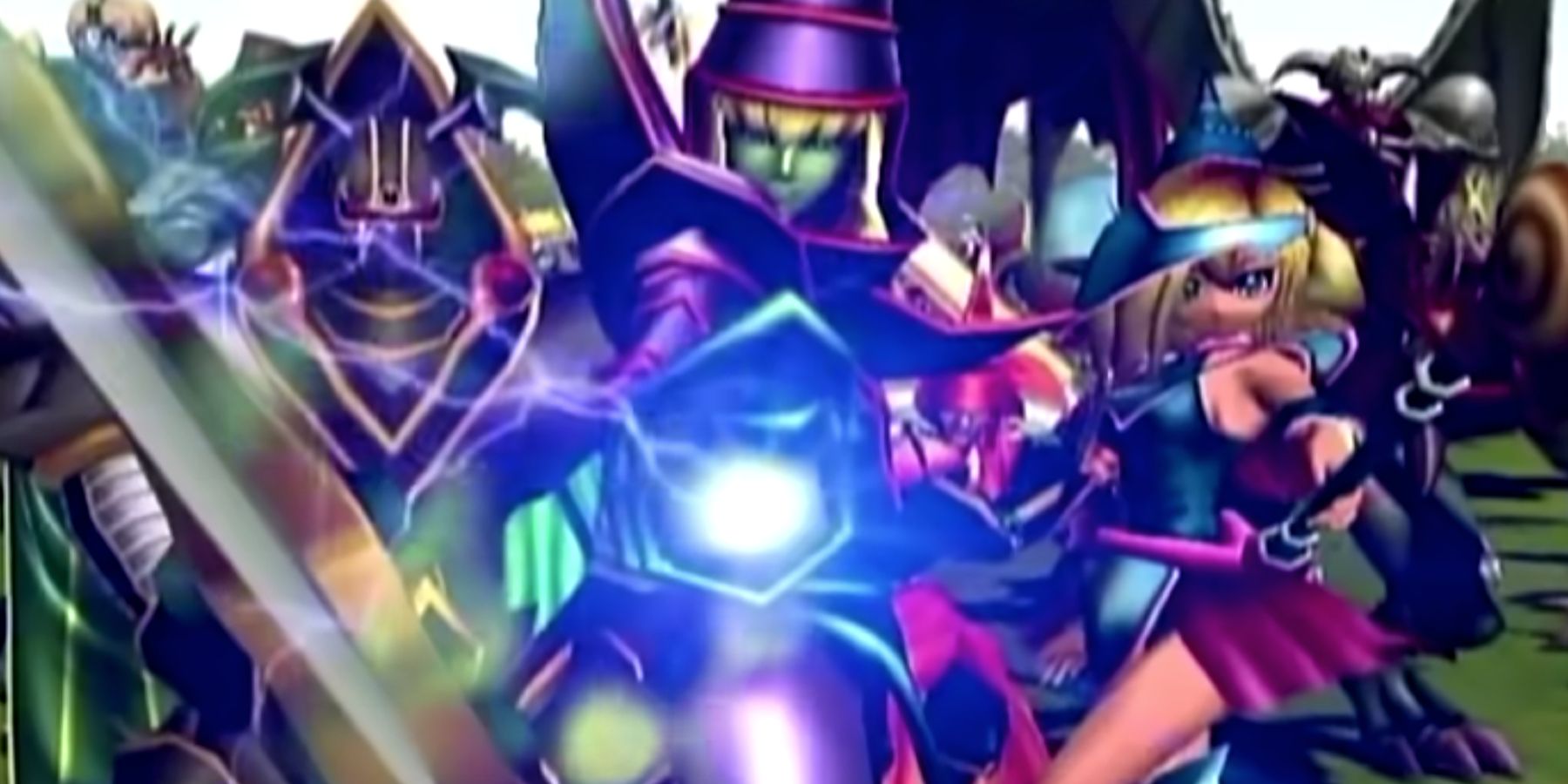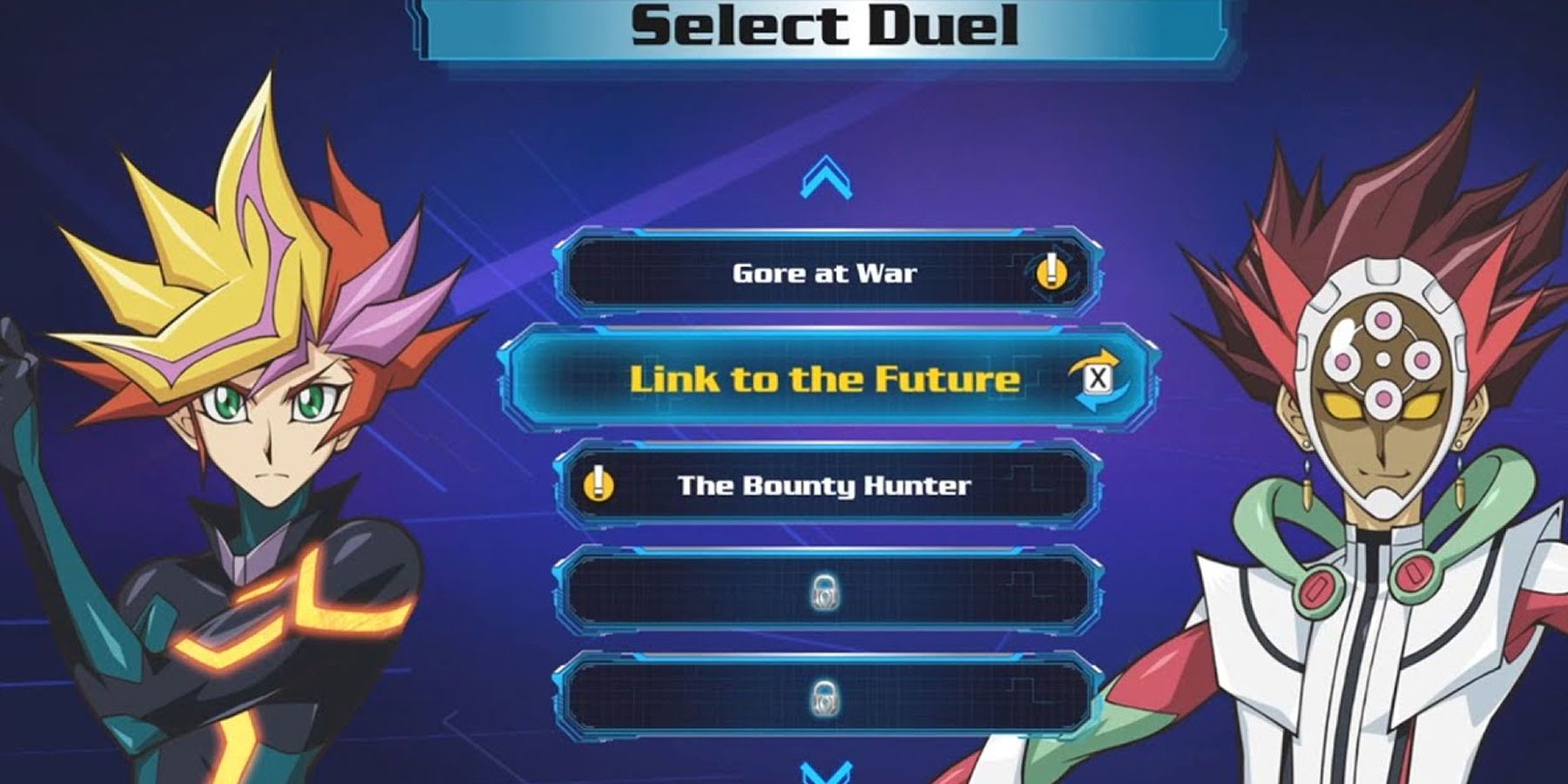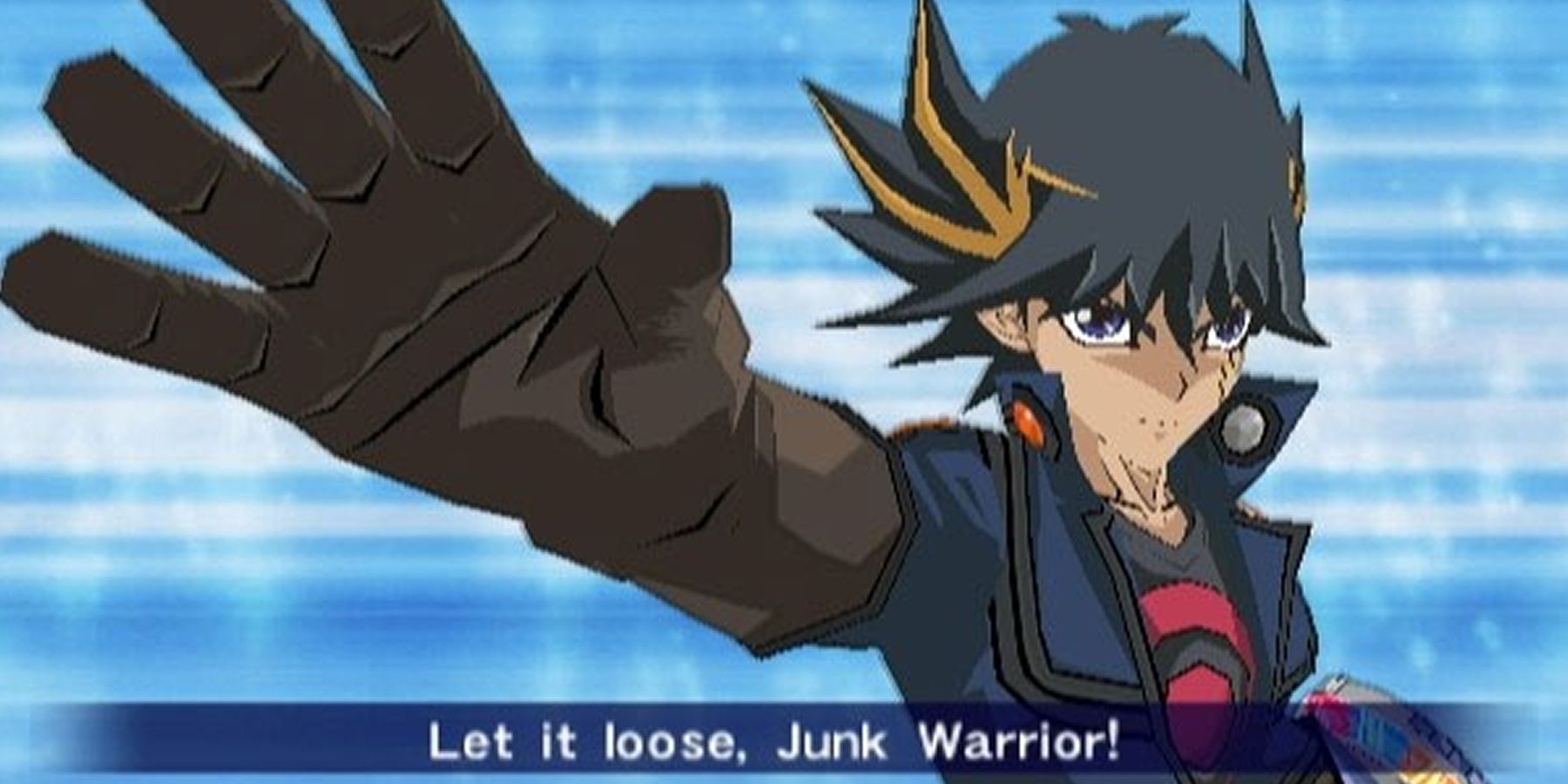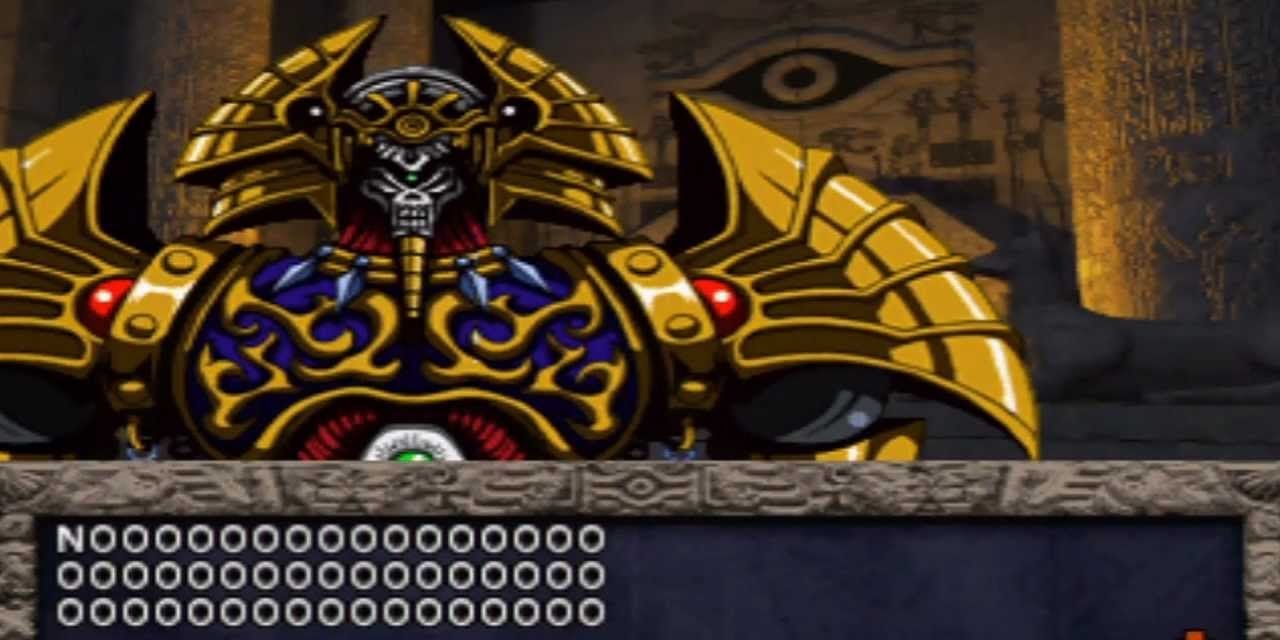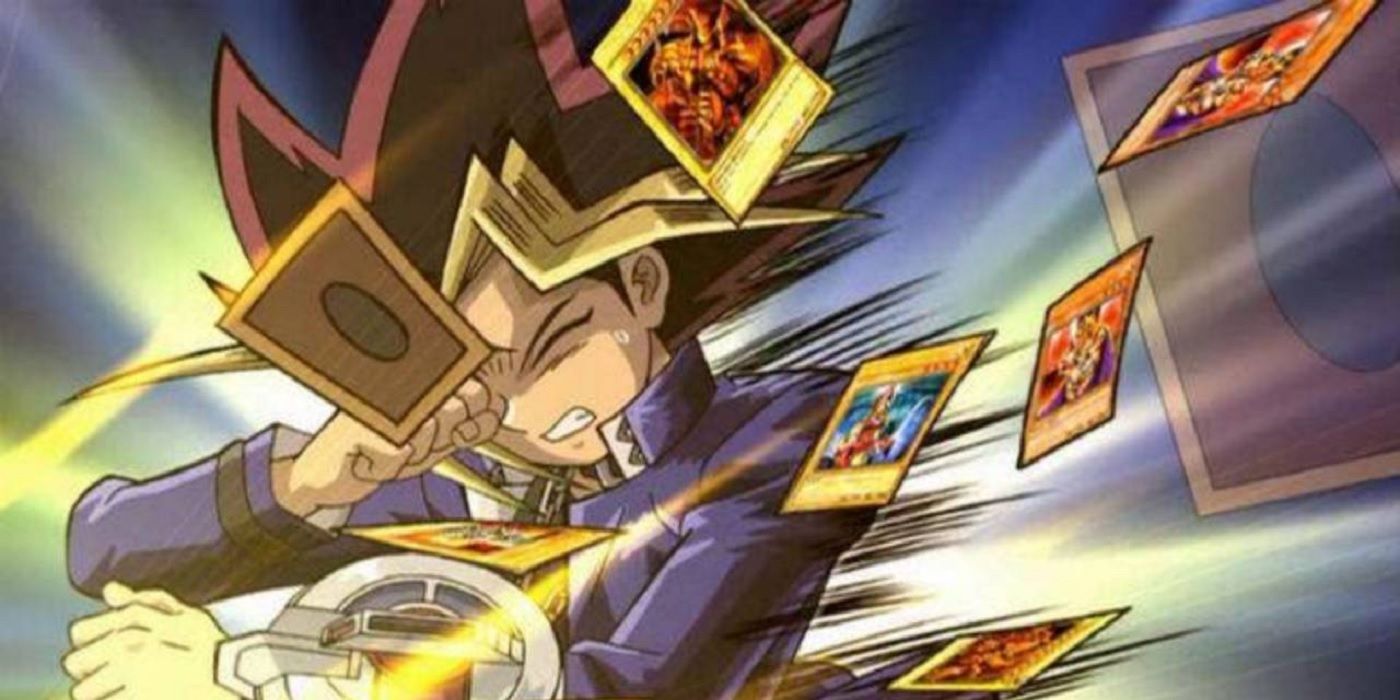Yu-Gi-Oh may be a world-famous card game, but despite how a YGO card game simulator sounds like a best-selling video game, it took a few tries for the series to find its footing with gamers. When players are looking for a YGO game to try, they have tons of titles to choose from that vary in experience and gameplay in surprising ways. The series has titles that simply exist to let people play with every card the game had at the time of its release as well as unexpected content like board game simulators and full-blown RPGs mashed up with elements of the TCG.
However, this doesn't mean all of these games are worth playing. When it comes to looking at all the Yu-Gi-Oh video games that are available, some titles offer significantly less content than others. This tier list will look at games that offer a fair deal of substance to the player in cards available and what exactly players can accomplish between titles.
S Tier
The games found in this tier are the best games to learn and experience the Yu-Gi-Oh Trading Card Game depending on what the player is after. All of these games can either serve as great entry points into the series or are a perfect way for veterans to jump back in. Some are also worth replaying just for nostalgia's sake.
- Duel Links - This widely successful and user-friendly Yu-Gi-Oh mobile title uses the Speed Duel format to compress what might be an hours-long game into mere minutes. It also focuses on the story and characters of every YGO anime, with Yu-Gi-Oh VRAINS being the next anime due to get its own world soon.
- Master Duel - The long-awaited Yu-Gi-Oh Trading Card Game simulator that is consistently being updated with new cards with crafting as a very generous way to obtain any card possible with ease. Its only flaw is the lack of a divider between casual and competitive players in ranked duels, but those who are too intimidated to go online have a solo campaign they can play through instead.
- Yu-Gi-Oh Tag Force series - The fact that seven Yu-Gi-Oh Tag Force games were produced speaks for itself as to how much these games are beloved by many fans. Counting the Japan-only Arc-V Special title, there's a game for almost every Yu-Gi-Oh anime, but the Tag Force series ended just before it could complete the set with a VRAINS title.
- Rush Duel: Dawn of the Battle Royale - To coincide with Yu-Gi-Oh SEVENS' spin-off of the YGO TCG, Dawn of the Battle Royale allows players to play the rather fast Rush Duel card game on the Nintendo Switch. Fans have enjoyed what Rush Duel does to simplify and change up the YGO formula, which has been criticized for being too complex.
- Nightmare Troubadour - While the franchise has made many missteps on the way to creating games for its fans, Nightmare Troubadour is a diamond in the rough for the fans of the original series. This DS title allows fans to play through the Battle City Tournament and the Virtual World arc of the anime with the rules of the old TCG completely intact, which is perfect to replay for nostalgia.
A Tier
This tier is for games that have either become cult classics with Yu-Gi-Oh players or have aged well despite lacking the cards that were released after it. Some of these titles are more experimental, as they leave the card game behind to try something new. This is where YGO's best RPG attempts come in, but some haven't aged as well as their TCG counterparts.
- Duelists of the Roses - While Duelists of the Roses still involves battling with cards, it also involves moving the monsters on a map which changes their stats based on the terrain. This game is a cult classic with many fans to the point that some believe Duelists of the Roses deserves a remake even years after its release.
- The Falsebound Kingdom - This game is once again loved among loyalists despite being panned by most critics. The game functions similarly to Duelists of the Roses, but with no cards and more free-roam mechanics with teams of monsters fighting rather than just one on one.
- Capsule Monster Coliseum - Before Yu-Gi-Oh took on its card game motif, it introduced smaller games such as Capsule Monsters in its first few manga chapters. Coliseum adapts this game to consoles with a few notes taken from Duelists of the Roses.
- Stardust Accelerator, Reverse of Arcadia - These two games of the 5Ds era serve as a great substitute for those who can't get Tag Force. While iconic mechanics such as Tag Force's friendship features are absent, the game allows players to experience the story of 5Ds in the same way. The third game, Over the Nexus, is notoriously known for not only featuring a much slower AI, but also getting the rules of the game wrong at times.
B Tier
Even though Yu-Gi-Oh has a strong variety of game types under its belt, some of them fall victim to various flaws. However, if some fans can overlook these problems, they're sure to have a great time with the title.
- Dungeon Dice Monsters - An adaption of the game with the same name introduced later in YGO's story. The game plays rather well and offers plenty of challenges, but lacks a proper tutorial which leads many players to put the game down.
- Ultimate Masters - This game comes from a time when Konami didn't have the space to put everything fans wanted in a card game simulation title in most of the other Yu-Gi-Oh titles in development. Ultimate Masters allows players to duel against Yu-Gi-Oh GX characters to progress, but the game has a bug that makes completing it passed 99% impossible.
- Legacy of the Duelist: Link Evolution, Decade Duels, Millennium Duels - All of these games were developed by Other Ocean Interactive, and unfortunately, they all suffer from the same problems. Each game is missing important card sets, and while Link Evolution allows players to play through every Yu-Gi-Oh anime, VRAINS is treated rather lazily as it goes without cutscenes and the last card set from its run.
- GX Duel Academy - This game is essentially what led to the 5Ds titles on the Nintendo DS, as Duel Academy set the groundwork for World Tournament titles going forward. It presents itself better than the games that came before it, but has a fair deal of flaws that would be ironed out in future titles.
- 5Ds Wheelie Breakers - Best described as Yu-Gi-Oh meets Mario Kart, Wheelie Breakers allows players to Turbo Duel in a fast-paced fashion while using the cards the series is known for as power-ups. The game lacks a proper tutorial, but if players stick with it, the concept is rather enjoyable.
- Zexal Duel World Carnival - Zexal Duel World Carnival may drop the ball when it comes to its story, but it offers a vast collection of cards including Zexal's new Xyz Monsters that make dueling in the game feel fun and rewarding despite what it lacks.
C Tier
These games are rather simplistic but have been picked up and enjoyed by series loyalists. They may not offer much in terms of challenge, but they may be worth a look for those who have played everything else on this list.
- 5Ds Duel Transer - Duel Transer saw players adventuring through a relatively simplistic story to duel 5Ds characters and win cards. For fans who just want an easy way to play the card game, Duel Transer is a great entry for the Nintendo Wii.
- Worldwide Edition - While Worldwide Edition has a small and simplistic story, it also features a calendar system that tracks which day it is and offers challenges to the player depending on the day.
- Destiny Board Traveler - A board game simulation title that critics hated, but have said hardcore Yu-Gi-Oh fans might enjoy. Yu-Gi-Oh DM fans looking for something new may find something here.
- The Eternal Duelist Soul - This title for the Game Boy Advance marked the start of Yu-Gi-Oh games using the proper mechanics found in the trading card game. Eternal Duelist Soul is known to be rather simple and lacks a reason for any of the duels found in the game.
- The Dawn of Destiny - While Dawn of Destiny is yet another game that only lets players duel their favorite Yu-Gi-Oh characters, it presents itself in a rather fun and dramatic way, also marking the first time the series has ever been on Xbox.
D-Tier
These games have either aged past their prime or gone out of their way to make things needlessly difficult for players. The trouble with video games dealing with ongoing trading card games is that eventually, they will be rendered obsolete by what cards come after them. While many classic Yu-Gi-Oh fans might enjoy the older titles due to how they stick with older cards, some games in this tier are left with so few cards that it hurts the game more than it helps. Still, there's some merit to these games, as some on this list have some rather loyal fans that still play, speedrun, and praise what these titles did to this day.
- Forbidden Memories - Another cult classic that many Yu-Gi-Oh fans adore, the game arguably has the least amount of cards ever found in a YGO title. On top of that, every card, including the starter deck, is obtained at random when only a select few have enough attack points to beat the late-game opponents.
- Dark Duel Stories, The Sacred Cards, Reshef of Destruction, 7 Trials to Glory - Due to these games being among the first-ever Yu-Gi-Oh video games, these games suffer from the same confusing rules found at the start of the series. They feature an elemental typing system similar to Pokemon that these games never explain fully that is adored by loyal players, and despised by others.
- GX Spirit Caller - Spirit Caller made a name for itself by allowing fans to obtain their very own Duel Spirit during their playthrough. While the idea seems cute, players can only pick between 16 spirits to be their partner out of the thousands of monsters that aren't even options. However, if fans wish to play an easy and forgivable game that allows them to attend Duel Academy with Jaden and friends, this game is a good choice.
- World Championship Tournament 2004 - WC2004 is another game that allows players to duel characters at random. While it plays similarly to The Eternal Duelist Soul, it comes with a troubling catch. To unlock the final duelists of the game, the player needs to have fifteen more wins than they have losses against every character in the game.
F Tier
These are the games that the Yu-Gi-Oh series has grown out of. All of these games here are either not worth finding or playing, or have much better successors higher up on the tier list.
- GX Beginning of Destiny - Beginning of Destiny is a port of the second Tag Force game onto the PlayStation 2 that suffers from a lack of optimization to support the game on console. Thanks to this, it suffers from long loading times and tricky deck-building mechanics that fans are better off going without.
- Yu-Gi-Oh Power of Chaos series - These PC games allowed players to duel against one of their favorite Yu-Gi-Oh characters of choice. Which one depended on if fans had Yugi the Destiny, Kaiba the Revenge, or Joey the Passion. While these games come with voice acting to make the player feel like they're truly dueling the character, the only feature of these games is to duel the same character over and over again.
- Yu-Gi-Oh Online - The Yu-Gi-Oh franchise's first foray into an online service model. It released two expansions in the form of Duel Evolution and Duel Accelerator. It was shuttered on September 30, 2012.
- World Championship 2007 - In order to take advantage of the Nintendo DS' Wi-Fi capabilities, WC2007 allowed players to duel each other online. The game unfortunately has no other modes besides online multiplayer. The following World Championship game attempted to fix this issue by allowing players to duel NPCs, but that was the only new feature added.
- GX Card Almanac - Card Almanac is simply an outdated database of Yu-Gi-Oh cards that were released at the time. For those looking for something similar, they should look into checking out the Yu-Gi-Oh Neuron app.
- Duel Arena - Duel Arena was the second time the franchise tried to create an online service dealing with the YGO TCG. Using chibi versions of the series characters as players' "Partners," the game used a gacha system to obtain new decks that were tied to Partners. The game only lasted about a year, including the months it spent in a closed beta.
- Duel Generation - The third Yu-Gi-Oh online service game. It had a loyal following of fans before it shuttered on September 30, 2020. However, there's an offline single-player campaign that can be played as long as players still have the app on their device.

